Muscle cramps can occur during physical activity, in the middle of an effort or shortly after. They can also appear at any time of the day. They refer to an involuntary contraction of a muscle, of short duration, but which can cause intense pain. Cramps can cause discomfort or hinder performance during exercise and can occur anywhere. Whether it is on the lower limbs such as the calves or thighs or on the biceps. However, it is possible to prevent them, or to relieve them after their appearance. In this article, we will explain how to treat muscle cramps.
What causes muscle cramps?
Cramps are caused by a number of different factors. Let's first see what exactly it is. Sporting effort consists of a series of successive contractions and relaxations of muscles. When a movement is too sudden, the muscle can no longer relax, and this is how cramps sometimes occur. Muscle fatigue can be the cause, but not only.
During muscle contractions, a supply of oxygen, but also of sodium, calcium and potassium is necessary. This allows the muscle fibres to move properly. As a result, a deficit of mineral salts can be responsible for the appearance of cramps in addition to muscle fatigue.
It has long been accepted that toxins, particularly lactic acid, were the main cause of this and other types of muscle pain. It was thought that these metabolic wastes, produced during physical effort, could accumulate in the muscle fibres. In case of bad blood circulation, their evacuation was made difficult. Today, this theory is questioned. It is thought that the main factors are an imbalance of water and minerals in the muscle cells.
Cramps should not be confused with contractures, which are distinguished by their more intense and prolonged nature. Spasms, on the other hand, refer to an involuntary contraction of smooth muscles (muscles surrounding vessels and organs, not subject to conscious control, as opposed to skeletal muscles).
How to treat muscle cramps?
There are various remedies to relieve pain and relax muscles. Among the best are mechanical solutions. Stretching is very effective. It is also advisable to massage the contracted muscle to help it relax. The sore area can also be massaged with ice cubes or an ice pack to avoid an inflammatory reaction, while taking advantage of the anaesthetic effect produced by the cold.
In order to soothe muscle pain, one can simply use analgesics such as paracetamol or ibuprofen. However, to act in depth and promote muscle relaxation, it is preferable to use ointments such as arnica or other relaxing cream.
It is also important to rehydrate after the muscle cramp occurs, in order to rebalance water and nutrient intake. Choose water rich in minerals.
Then, in terms of prevention, do not neglect the importance of a warm-up before your sports session, and stretching afterwards. Be sure to focus on the muscle groups that you have used the most. In this way, you will not only prevent cramps, but also possible untimely contractures.
What foods should I eat to avoid cramps?
If you are affected by this problem, you should know that it can be prevented by adopting good eating habits. Calcium, magnesium and sodium help regulate the nerve functions that control the contraction and relaxation of muscles. They are called electrolytes because these minerals are charged with ions that relay the information needed to perform these movements properly. Therefore, it may be beneficial to include them in your diet.
Examples of foods that are effective against cramps:
- Banana;
- Dried fruits ;
- Vegetables (especially spinach, cabbage, leeks, etc.) ;
- Pulses;
- Seafood ;
- Dairy products, preferably lean;
- Cereals, wholegrain, preferably bran or rye.
These foods are indeed rich in magnesium or potassium, or both! As for sodium, it is already sufficiently present in our food habits. It is not necessary, and even inadvisable, to add sodium, as it is a risk factor for high blood pressure.
Vitamins B1, B5 and B6 help to synthesize glycogen, which carries energy reserves in the muscles. It can therefore be useful to consume them regularly, in food supplements or in natural sources.
Since sweating causes significant water loss, it is important to drink plenty of water every day. Note that hydration is essential before, during and after exercise. On the other hand, it is advisable to avoid alcohol and caffeine, which promote dehydration.
There are also food supplements that can also compensate for your magnesium or calcium deficiency:
Here are my recommendations:
Do weight trainers have more cramps than non-exercisers?
Contrary to popular belief, this problem does not only affect athletes. Some sedentary people may be even more prone to it than a regular bodybuilder! For example, a person who does not practice any sport, but who has a deficiency in trace elements or a lack of hydration is likely to be affected.
In fact, it is even common for people who do not engage in regular physical activity to find themselves prey to this health concern. If a muscle is not or no longer used to exertion (to perform contractions and releases), it is more at risk of suddenly locking up. A bad sleeping position can also be a trigger. One then suddenly wakes up with an urgent need to stretch. Elderly people are particularly prone to this problem.
Things to remember to avoid cramping:
- Eat a mineral-rich diet
- Make sure you hydrate regularly
- Warm up thoroughly before each workout
- Take the time to stretch yourself after
And to treat them:
- Massages
- Stretching
- Relaxing creams
- Analgesic (as a last resort and for pain only)
Do you want to build up your muscles?
Other articles to read :
How to look good with your sportswear? (special for girls)

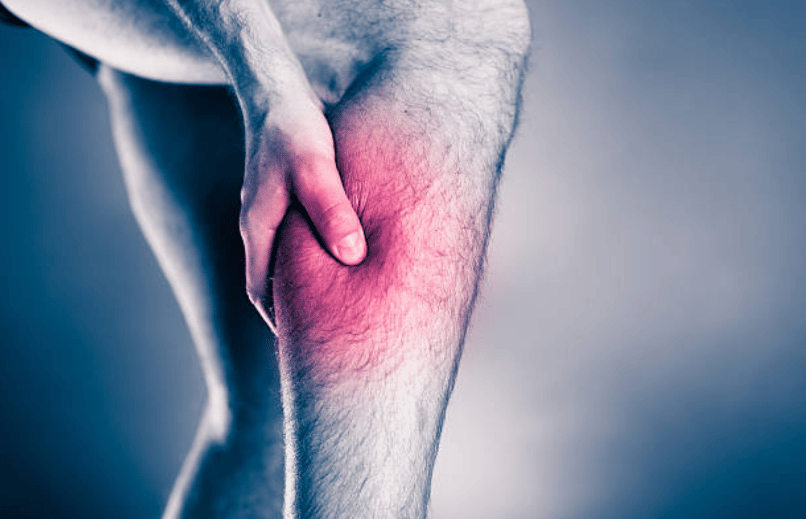
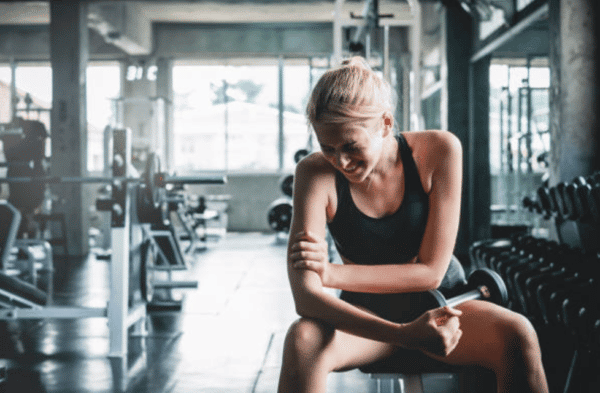
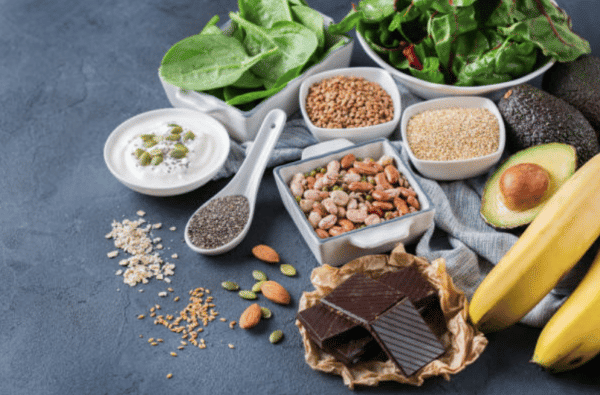
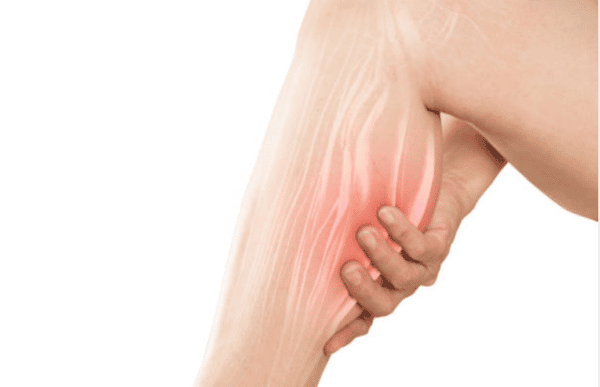
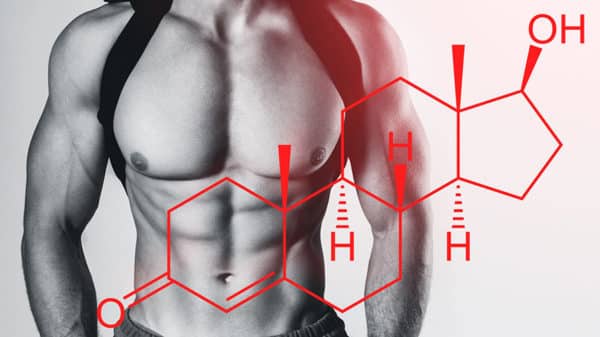





4 Comments
For cramps and aches there is nothing better than arnica oil and essential oil of wintergreen. 2 drops of essential oil for 10 drops of arnica oil. It is magic!
Hello, Julien,
I just read your article on cramps, super interesting!
I am subject to calf strains, do you have any recommendations, is it the same as for cramps?
Is it necessary to eat in a particular way or take food supplements?
Have a nice day,
Thank you. You should rest the muscle for several days. You can use a muscle relaxant ointment directly on your calves. Anti-inflammatories and painkillers are sometimes necessary.
For a calf strain, you should put some cold and compress the muscle for a few days. You can also take some paracetamol.